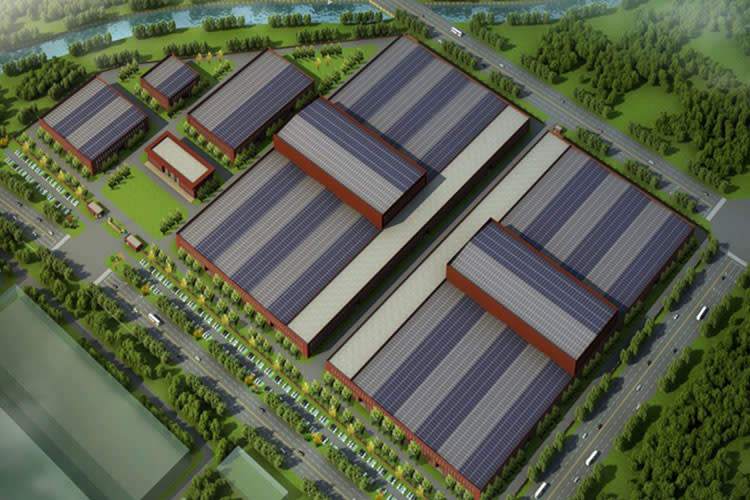Michigan is becoming the center of US battery manufacturing

Michigan, long the automotive manufacturing capital of the United States, is now getting pumped with investment both publicly and privately to build out a series of battery manufacturing plants that will power the wave of electric vehicles coming to market.
The demand for domestically produced batteries has reached new peaks after the passage of the Inflation Reduction Act (IRA), which includes consumer tax incentives for buying EVs with battery material produced in the United States. Battery makers are rushing to grab available land and start production on factories to meet that demand, shore up their own supply chains and qualify for incentives laid out in the IRA.
Battery factory announcements and automaker-cell manufacturer joint ventures have become commonplace in 2021 and 2022 — particularly in Michigan, Tennessee and other Southeastern states. And they don't appear to be slowing down.
Michigan gained two more projects this week.
Chinese battery maker Gotion announced a $2.36 billion investment to build a battery component facility in Big Rapids that promises 2,350 jobs. The state of Michigan also saw a $1.6 billion investment from Our Next Energy (ONE), an electric car battery startup helmed by former leaders of Apple's secretive car project, to build a battery factory in Van Buren Township that aims to create enough cells for about 200,000 EVs annually.
“I am proud that Republicans and Democrats worked across the aisle to build up our economic development toolkit and empowered Michigan to compete for every project and every job," Michigan Governor Gretchen Whitmer said in a statement about the Gotion investment. "Together, we will continue winning investments in this space and become the preeminent destination for electric vehicle and mobility companies. We will work with anyone and compete with everyone to keep bringing supply chains of batteries, chips and electric vehicles home to Michigan.”
Earlier this week, Whitmer signed a package that included additional investment -- $496 million for future economic development projects and $350 million for site development statewide -- for Michigan's Strategic Outreach and Attraction Reserve (SOAR) fund. The fund, which totals $1.11 billion, is partially responsible for helping Michigan attract the investment from Gotion and ONE.
Michigan was apparently in competition with Texas, Georgia, Kentucky, South Carolina, Illinois and Ohio over Gotion, but the SOAR fund helped provide the right incentives to win the business, including around $175 million to support critical industries and site readiness, the state said.
The fund was also used to approve a $200 million grant to support ONE's project that promises to create 2,112 jobs by the end of 2027, when the factory should be fully operational. That money can be taken back by the state if ONE doesn't create or maintain that number of jobs.
Michigan's incentives have attracted automakers looking to produce their own batteries domestically, as well.
At the start of the year, General Motors invested $7 billion to convert the Orion Township assembly plant into a full-size EV pickup factory and to build Ultium's (GM's battery joint venture with LG Chem) third battery cell plant in Lansing. The state included a total of $666.1 million in support for GM's projects.
In June, Ford said it would invest $2 billion into three EV assembly plants in Michigan. The state chipped in another $100.8 million.
Breaking down the new investments
The IRA didn't only incentivize domestic battery production to create new jobs and industry for the U.S. but also to reduce reliance on China, which has been the absolute dominant force in battery material supply and production.
Gotion's investment in Michigan follows a string of other Chinese battery giants expanding overseas -- both to continue supplying the U.S. market and to find a home for their products. CATL, for example, is building a plant in North Carolina, and SVOLT is working on its second German factory. The Chinese battery industry seems to be producing more batteries than domestic demand requires, so tapping foreign markets could be an indication that growth in China will slow. Not to mention, Gotion's margins have been underperforming, according to an analysis by "24 Waves," a blog that focuses on China's new economy.
The Chinese company's Michigan plant will cover an estimated area of about 260 acres and will churn out about 150,000 tons of cathode material per year via two 550,000 square foot production plants, according to Michigan's Economic Development Corporation. The project will also include the construction of two production plants dedicated to producing 50,000 tons of anode material per year.
Like Gotion, ONE intends to produce lithium iron phosphate (LFP) cells at full capacity of 20 gigawatt hours annually. Most of the U.S. auto industry has focused on lithium ion cells that contain varying amounts of more expensive metals like nickel, cobalt, manganese and aluminum, which have a higher energy density and more range but have been linked to multiple battery fires. LFP technology is usually cheaper and less volatile, but has less range. Now, many automakers are exploring the cells in part to alleviate material shortages.
ONE says its LFP packs will have comparable range to current battery packs that are made with nickel, cobalt and manganese cathodes but will cost 35% less. Production of batteries for delivery truck usage is scheduled to begin in March, followed by automotive customers by the end of 2024, the company told the Wall Street Journal.
The company is also aiming to produce a battery pack with over 600 miles of range with cells that are up to 50% cheaper than today's standard. That pack, scheduled for 2026 production, will include two types of chemistry: LFP technology for daily driving and anode-free cells for longer-range trips.
Neither ONE nor Gotion has revealed which automakers they will partner with once their batteries are up and running, though ONE has partnered with BMW to produce a prototype BMW iX that uses some of its battery technology.

 Yahoo News
Yahoo News 
